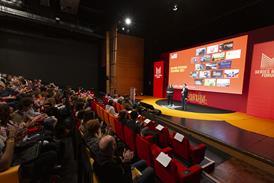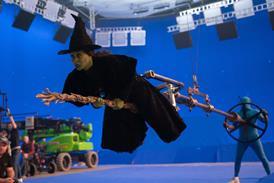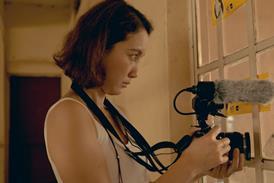Iranian film organizationFarabi is championing international co-productions between Iran, Iraqand Afghanistan in order to promote filmmaking in the region.
Currently in post is TurtlesCan Fly director Bahman Ghobadi'snew film, Half Moon (Niwe Mung), which has been set up as Iran-Iraq-Austria co-production.
The picture is about afamous 80-year-old Kurd musician, who has a wife, a daughter and 14sons. One day he is invited to write a Kurdish symphony and travelsacross Kurdistan on a bus, while also looking for a bride for hisyoungest son.
Recent Iranianco-productions include festival hit Turtles Can Fly - a co-production between Iran, Iraq andFrance - and Afghanistan director Siddiq Barmak's Osama.
"We want to haveco-productions from Afghanistan and Iraq. It is important for us to havecultural ties between our countries," says Farabi director AmirEsfandiari. "We're trying to promote filmmaking in the region. Wewant to help them, as they are countries that have a lot of suffering."
Esfandiari says in spite ofIran's eight-year war with Iraq, Iran was "the first country toco-produce a film with Iraq."
Esfandiari said Iran thisyear invited Iraq to attend its Fajr film festival and Iran Film Market(IFM). It also invited a Kuwaiti filmmaker for the first time.
Iran currently produces anaverage of 80 films per year, ranging in budget from less than $1m to$10m.
Top of the Iranian boxoffice at the moment is the Marriage Iranian Style, a romantic comedy by Hassan Fathi about an Americanwho falls in love with an Iranian girl.
The film has earned a huge$4m in Iran, where the price of a ticket is around $1, Esfandiari says.Another current hit is the comedy Ceasefire, about newlyweds with problems.



















No comments yet